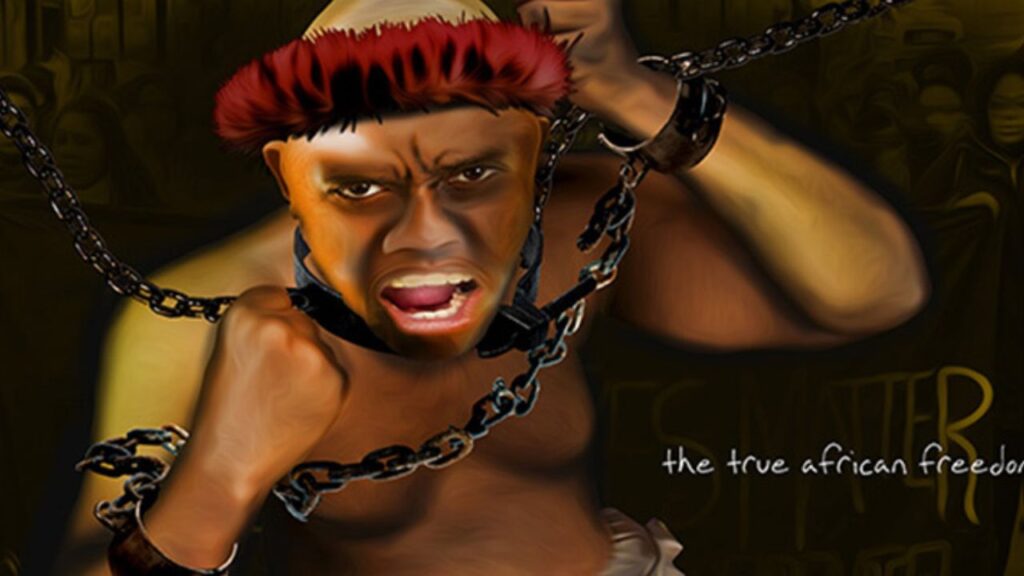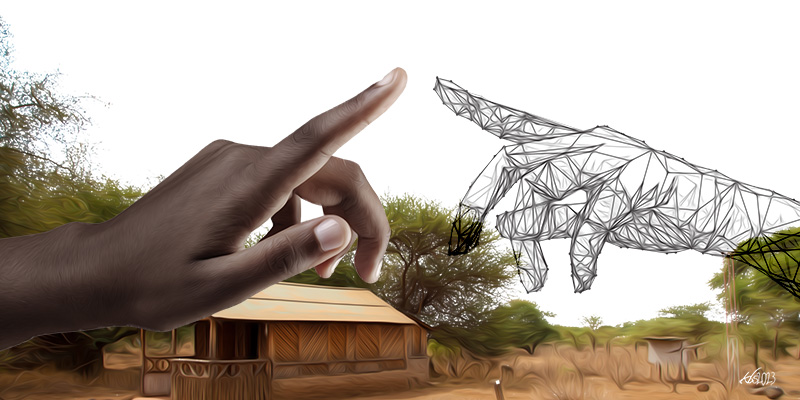Just over a year ago, in February 2020, I flew to Nairobi to award the 5th Mabati Cornell Kiswahili Prize for African Literature at a ceremony at the Intercontinental Hotel. While disembarking from the plane, every single passenger had their temperature taken with an infrared thermometer, causing a long, mildly disgruntled queue in a confined space at the arrival gate. We all knew this was because the coronavirus had started to appear outside of China, but we didn’t think there was much risk of contagion at that point. When I flew back to London a few days later, I changed planes in Paris and mingled freely with thousands of passengers from all over the world. On arrival at Heathrow, my temperature was not checked at all. In fact, it took until February 2021—a year later—before the British government restricted entry to the UK and enforced mandatory quarantine on arrival.
I had a similar experience when I flew to Lagos in 2014 for the Ake Festival while Ebola was raging in nearby West African countries; at the time, these countries were struggling to contain the deadly, appallingly contagious virus within their borders. At Murtala Mohammed International Airport in Lagos, all passengers had their temperatures checked, but on my return to London, I only saw a few posters that warned of Ebola in West Africa. Nobody checked where I had come from or whether I had been in contact with anyone who could be infected, even though there was a Liberian writer at the festival in Abeokuta and a Liberian woman being taxed for a bribe in the passport queue in front of me in Lagos. Liberia, Guinea, and Sierra Leone were the three countries affected by this outbreak, the worst in the history of Ebola.
Two weeks after I left Nairobi last year, the chair of the Kiswahili Prize, Mwalimu Abdilatif Abdalla, was told he could not leave Kenya to return home to Germany on March 26. After I left, he had stayed on to go to Mombasa and Tanzania and visit relatives in his village in Kenya. Instead, his return flight was canceled and he was confined to government accommodation for over two weeks. When I asked him on WhatsApp how he was coping, he said that after three years in solitary confinement in Kamiti Maximum Security Prison (1969–1972), he was managing very well. His sense of humor always defies belief! His friends even joked that he could write a quarantine memoir called “Sauti ya Korona” (The Voice of Corona), after Sauti ya Dhiki, his prison anthology.
By March 16, 2020, the UK was in lockdown and coronavirus had spread all over the world. I couldn’t help thinking that I had been safer in Africa—and I promptly caught the virus and lost my sense of taste and smell for 10 days. The friend I had probably caught COVID-19 from developed long COVID-19 and was ill for six months, whereas I recovered quickly. It seems this roll of the dice reaction was the same for many people: symptoms varied and doctors struggled with the scale and variety of immune responses. A year later, this coronavirus has realized the fears of a global pandemic precipitated by SARS and dreaded for Ebola; at the time of writing, the world approaches 5 million COVID-19 deaths, with 163 million recoveries among the 178 million recorded cases globally. Notably, the Kenyan death toll is currently under 4,000, and the Nigerian count just over 2,000.
In Veronique Tadjo’s book In The Company of Men (2019), first published in French in 2017, we find a timely reminder of “the destructive powers of pandemics.” The book focuses on the Ebola outbreak of 2014, which preceded the COVID-19 pandemic by six years but has been present in parts of Africa since 1976, when it was first discovered in the Democratic Republic of Congo and named after the Ebola River near which it was found. Tadjo has commented that she sees a clear link between Ebola and COVID-19, although they are very different diseases. “For me,” she writes, “the Covid-19 pandemic is a continuation, not a break. It inscribes itself in the same context of climate change and its consequences. Ebola wasn’t a one off and Covid-19 won’t be either.”
Through five sections comprising 16 different points of view, Tadjo presents the impact of the Ebola pandemic from the perspectives of different characters including trees, nurses, those infected, survivors, and the virus itself. For example, in a chapter titled “The Whispering Tree,” the narrator declares, “I am Baobab.” The choice of the baobab tree’s perspective is unique, telling of Tadjo’s concern with environmental degradation as a key factor in the development of such a deadly virus. Reviewer Simon Gikandi, a Kenyan novelist and scholar, comments that “Tadjo weaves a story that turns the 2014 Ebola epidemic in West Africa into a parable of what happens when the chain that connects human beings to nature is broken.” And this is perhaps where we have the most to learn in terms of new ways of seeing the COVID-19 pandemic. As Gikandi remarks, “In the Company of Men gives voice to the natural world and mourns the loss of the well-being that existed before the destruction of the environment and the arrival of postmodern pandemics.”
In the context of such questions, I was struck by a recent BBC documentary called Extra Life: A Short History of Living Longer, in which David Olusoga and Steven Johnson examine the history of vaccination starting with the rise and eradication of smallpox. They detail how an African man was purchased in 1706 by a Puritan congregation in Boston as a gift for their minister, Cotton Mather, and was “forced to take on a new name,” Onesimus, after a slave in the New Testament. When Mather asked whether Onesimus had ever had smallpox—rife in Africa at the time—he replied, “Yes and no,” and then described the variolation procedure he had undergone in Africa before his capture. Variolation involved cutting the arm and putting fluid from a smallpox wound onto the cut, creating resistance in the host’s bloodstream without transmitting full-blown smallpox. This practice precedes Jenner’s experiments with cowpox by 90 years and had been present elsewhere in the world since the 1500s. This is a key example of effective preventative medicine that was present in Africa before slavery. And yet, the onset of modern transatlantic slavery is when the destruction of the global environment seems to really begin.
With the export of “valuable commodities” from Africa, including human beings, there soon followed deforestation, mining, farming, and building projects that formed the foundations of colonialism, western capitalism, the industrial revolution and imperialism. The rapacious nature of this conquest, which ignored indigenous knowledge systems and ways of living in harmony with the environment, also often spread disease, occasionally leading to new discoveries in medicine (which were not acknowledged or credited at the time).
The presenters of the documentary rightly laud the eradication of smallpox in just 18 years (1967–1985) as one of the great achievements of mankind, one which epidemiologist Larry Brilliant called “the end of an unbroken chain of transmission going all the way back to Rameses V.” Prior to vaccination efforts, smallpox had been killing 2 million mostly poor people a year, and the subsequent campaign involved the cooperation of 73 countries, including Cold War enemies the US and USSR. As Lucy Mangan writes in her Guardian review, “We can be so terrible, and we can perform such wonders.” And it is these wonders that Tadjo brings to our attention by writing In The Company of Men. The containment of the Ebola virus in West Africa in 2014 is due to the combined heroic efforts of people on the ground and the local people who heeded public health messages, attended clinics, separated family members, stopped attending funerals, and got vaccinated.
Tadjo reflects in an interview that “the Ebola epidemic has a multi-layered dimension. It seemed to me that listening to various voices was the best way to get closer to a form of reality. An incredible number of people were involved in the fight against the virus and I could not bring myself to focus on one voice only.” Interesting correlations and discoveries were made by zoologists, for example who,
discovered a phenomenon that greatly increases Ebola’s catastrophic impact. When an outbreak is about to happen in a forest region, the virus will leave gruesome traces in the natural environment. It attacks antelopes, deer and rodents, but especially big apes such as chimpanzees … The remains of hundreds of animals are scattered on the ground … Whenever the villagers notice an unusual number of wild animal carcasses, they’ve learned to alert the local authorities at once, since the carcasses signify that an Ebola outbreak among humans is about to happen.
This connection to the rest of the natural world seems crucial to understanding epidemiology itself and answering the question of how these viral mutations arise (e.g., swine flu, bird flu, etc.). This is why we should be paying closer attention to the other (mass) extinctions occurring in this Anthropocene epoch.
Using the voice of the baobab is inventive and useful in establishing a timeless link to the forest and to ancestral points of view. But using the voice of a virus itself is fairly unusual in African literature. Kgebetle Moele was the first South African writer to do this, writing from the point of view of HIV in his novel The Book of the Dead (2012), which I have written about elsewhere. Moele’s HIV is a malevolent, predatory infiltrator of the human body. This infiltrator, once personified, seems to corrupt its host while replicating itself in unsafe sexual encounters, killing hundreds if not thousands of men and women in deliberate acts of aggression. The Ebola virus, on the other hand, is immediately established (in its own words) as less malignant than humans themselves; Tadjo writes of “man and his incurable, pathological destructiveness.” Humans are blamed throughout for having destroyed the environment and the natural harmonious link between man and nature. However, this is countered by the assertion of human solidarity as a powerful weapon or antidote. Early on in the book, the nurse welcomes the help of volunteers, saying, “when I see solidarity, it makes me want to work even harder.” Even the virus admits that “I understood that their true power showed itself when they presented a united front.”
Much of Tadjo’s writing, including The Shadow of Imana (2002), articulates what “cannot be written or heard.” By writing the voices of the perpetrators and victims of genocide, Tadjo enables us to reach a point of understanding—or, at the very least, consciousness—of what many consider unspeakable. The art of her storytelling lies in this ability to synthesize factual accounts and information first with the lives of real people who lived through the Rwandan genocide against the Tutsi, and now with the experiences of those who lived through the Ebola outbreak in West Africa. In the Company of Men works similarly to unveil the voices of the hidden and, most significantly, those of the dead who cannot tell their own stories. Her writing itself is an act of solidarity. If we listen, we can not only empathize—we can learn from these stories. The accounts should also act as a warning, as pandemics will continue to threaten humankind alongside climate change.
Tadjo’s book reminds me of an aspect of Colson Whitehead’s The Nikel Boys that I have admired so much—that it is so difficult for a narrator to tell a story when the protagonist is dead. Usually, the telling of the tale gives away the fact that the protagonist has survived, or at least lived long enough to narrate the story, but Whitehead twists the ending of his novel to such an extent that we do hear a tale from the grave, from an impostor. This almost reinvigorated story describes the tragic fate shared by many Nikel Boys, whose identities are now lost. This is what is important about Tadjo’s writing: by including the voices of the dead in In The Company of Men, she inscribes the lives of those whose pitiful deaths don’t make it into the real story of Ebola (except as death toll statistics).
This is what the novelist Maaza Mengiste refers to when she asks, “What do the living owe to the dead?” The sheer number of people who died in the Ebola epidemic, the COVID-19 pandemic, the HIV/AIDS pandemic: this is what causes us to lose our sense of perspective and our ability to understand the real human cost of each universe that is lost to these deadly diseases. Mengiste’s further question—“What do they owe to the earth, which both protects and punishes?”—is one we will have to keep considering while we continue to destroy our earth. Is Tadjo’s Ebola virus right? Is man’s pathological destructiveness incurable? What do we owe the earth? Is there the political will, as there was with smallpox, to vaccinate every human against COVID-19, before it mutates into something far worse?
–
This post is from a partnership between Africa Is a Country and The Elephant. We will be publishing a series of posts from their site once a week.








